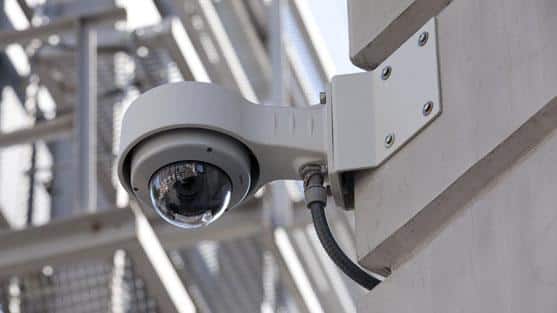- Jan 09, 2019
- |
- Category:Surveillance Camera and Access Control
Buying Commercial Security Cameras Can Be Tricky
We’ve come up with our top five tips for buying commercial security cameras to help simplify the process and make sure you get what you need
Imagine your phone rings and the voice on the other end informs you that there has been an attempted break-in at your business. Your stomach plummets as they tell you there was substantial damage.
What happens next can go one of two ways.
In Scenario A, you go to your business and find that the property is wrecked—windows smashed, door kicked in, your cabinets tipped over. Police inform you that they don’t have any leads, and without more information, they’re unlikely to find the people responsible. You’re left to pick up the pieces of your business alone, and the vandals suffer zero consequences.
In Scenario B, you go to the scene and find the same damage. This time, however, you inform the police that you have surveillance cameras, and several of them watch the building’s door and parking lot. You give law enforcement the footage, and they’re ultimately able to get enough information from the security cameras to identify the perpetrators and ensure that they can’t do the same thing to anyone else.
If Scenario B sounds like a better option to you, you’re not alone! Business owners across the globe are recognizing the benefits of having a security camera system. Surveillance cameras are quickly becoming a must-have for businesses that take security seriously.
If you’re not familiar with security systems, figuring out what’s important can be overwhelming. Let’s take a look!
- Figure Out What Your Security Needs Are
The first step when you’re in the market for security cameras is to take a look at what you need them for. Do you need to keep an eye on cash registers or merchandise areas? Are you trying to maintain limited access to restricted areas? Do you need to protect your business from vandals and thieves?
You might have multiple reasons why you’re looking to buy security cameras. The big thing is to be able to clearly articulate what those reasons are. That knowledge will help make sure that you get surveillance cameras that can actually do what you need them to do.
- Set Your Budget
Once you know what your security needs are, it’s time to sit down and crunch the numbers. There are security camera systems that can fit in just about any price range, but you need to know what your price limit is before you start shopping. Keep in mind that you should budget for installation, maintenance, data storage costs, and ongoing technical support along with the cost of the cameras themselves.
- Determine What Type of Camera Makes Sense
One of the biggest questions buyers have is whether to invest in analog or IP cameras. Analog cameras are the old-school surveillance cameras you see in most movies. They’re usually wired straight to a DVR or other recording device and project the images they capture on the screen. IP cameras use an Ethernet cable or wireless Internet connection to transmit the images to a central network. They have much higher picture quality and allow for more flexible installation options. If you’re looking to put in a new security camera system, we recommend IP cameras hands down.
If you need cameras that cover a large area (like a parking lot), you might want to look into Pan-Tilt-Zoom (PTZ) cameras. Unlike most security cameras, PTZ cameras can be moved remotely. That means that someone monitoring the cameras could change the angle or focus of the PTZ camera to check on something without having to physically leave the monitor to adjust the camera. As a result, you can monitor much larger areas with a single camera.
Along the same lines, License Plate Recognition (LPR) cameras have specific modifications that allow them to clearly capture images of license plates. The quality of the picture and the likelihood that the image will be readable if astronomically higher than if you attempt to look at license plates using regular surveillance cameras. If you want to accurately keep track of license plates for security purposes, you’ll want to invest in an LPR camera.

- Identify What Storage Method You Want to Use
The two main options for storing the footage from your cameras are hard copy (think DVR recordings) and cloud or network storage. The storage option that you want to use will help determine what cameras you want to get. For example, if you want to be able to check security footage from your phone, you’ll need cameras that are capable of uploading footage to the cloud.
- Decide How Much Support You Want
If you’re really trying to cut costs, you can always try installing and maintaining your new video surveillance system yourself. However, there are many benefits to working with a company that specializes in security cameras installation. You’ll be able to rest easy knowing that you have the right cameras for the job, that the cameras were installed correctly, and that you’ll have support if any problems arise. It will also be much easier to add to your security system or perform upgrades in the future if you’re working with professionals.
At datanet IT, we’re here to help you figure out the solutions you need for your business. Send us a message if you’re interested in learning more about how we can help you protect your business using the best security cameras in the business. Ready for a quote? Fill this out to get one.


